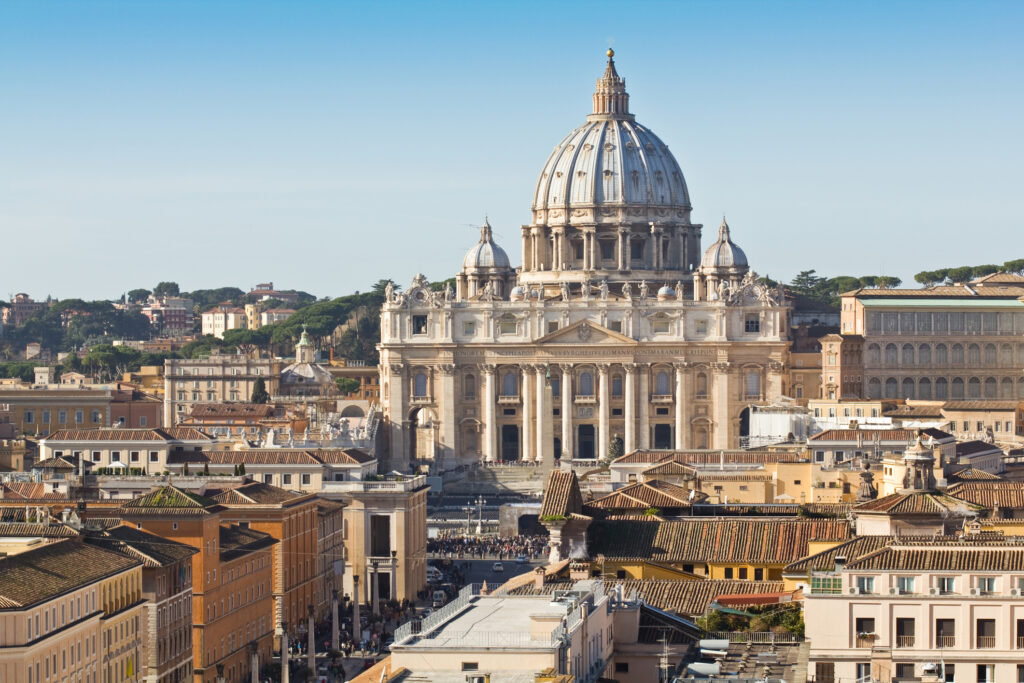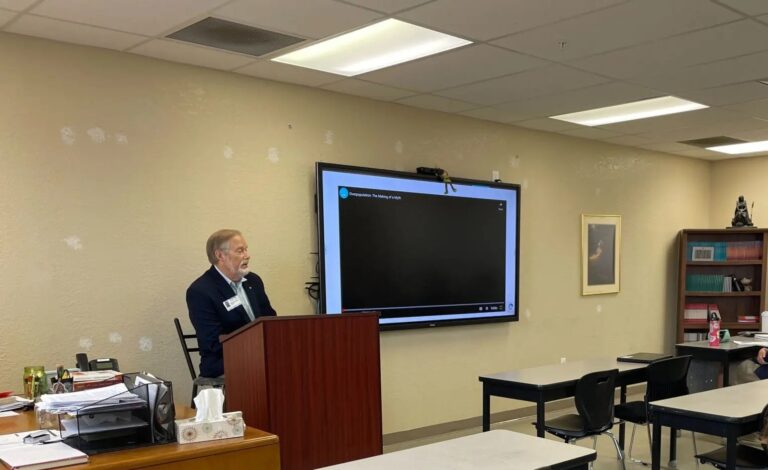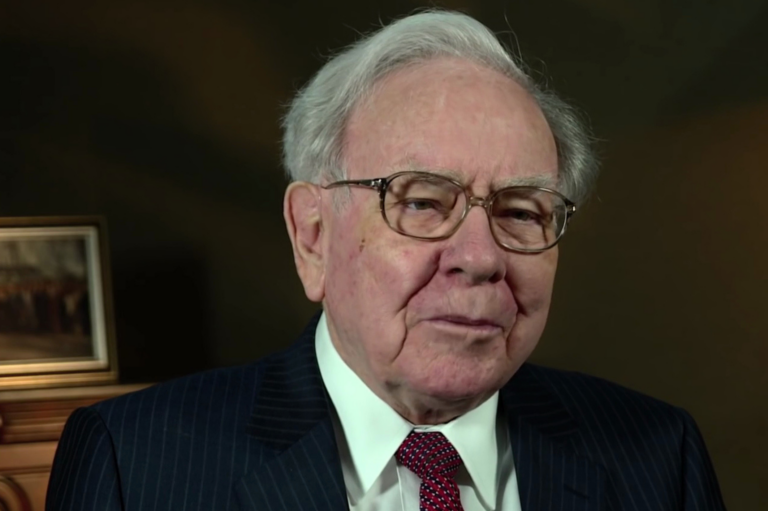PRI President Steven Mosher recently interviewed the president of the John Paul II Academy for Human Life and the Family (JAHLF), Dr. Thomas Ward. The JAHLF was set up seven years ago following the “reinventing” of the Pontifical Academy for Life (PAV), originally founded by Pope John Paul II. Dr. Ward himself, along with numerous other outspokenly pro-life members of the PAV, was asked to leave the Academy by the incoming Archbishop Paglia, who has since taken the Academy in, it is fair to say, a very different direction than JPII intended. In 2017, following these dismissals, the John Paul II Academy for Human Life and the Family was founded to serve the same goals as the original Pontifical Academy for Life for the interdisciplinary study and defense of human life in all its stages. They continue their work today, fully faithful to the authentic magisterium and perennial doctrine of the Catholic Church.
Steven Mosher: Dr. Ward, as the President of the JPII Academy for Human Life and Family, how do you and other members of the Academy view the upcoming Synod on Synodality, which will be held in Rome from October 4 to 29?
Dr. Thomas Ward: I and many other members of our Academy are deeply concerned that the Synod on Synodality will be used to affect a radical paradigm shift on Catholic morality on life and the family.
Steven Mosher: That’s a bold claim that will shock many. Can you substantiate it?
Dr. Ward: Yes, I can. Let me quote the words of senior churchmen who are openly working for this radical paradigm shift in Catholic morality, starting with Archbishop Vincenzo Paglia, whom Pope Francis appointed to head the Pontifical Academy for Life (PAV). In the words of Archbishop Paglia, the role of PAV is
to accept the invitation contained in paragraph 3 of his Apostolic Constitution Veritatis Gaudium (the Apostolic Constitution on Ecclesiastical Universities and Faculties) for a radical paradigm shift in theological reflection.
… to render a service to the Magisterium by opening up a space for dialogue that makes research possible and encourages it. This is how we see the role of the Academy, which Pope Francis himself also wanted on the front line on delicate issues to be addressed through a transdisciplinary approach. [italics added]
Steven Mosher: So that striking phrase, “radical paradigm shift,” comes from Francis himself.
Dr. Ward: A paradigm is a conceptual framework. Paradigm shifts in science arise when the dominant paradigm is thrown into crisis by new information. The result is that the previous paradigm is replaced by a new conceptual framework or system of beliefs. But bear in mind that in this case the “paradigm” in question is our system of Catholic beliefs.
And, to answer your questions, the phrase comes from paragraph three of Pope Francis’ encyclical Veritatis Gaudium, where he calls for “a broad and generous effort at a radical paradigm shift, or rather – dare I say – at a bold cultural revolution.”
Steven Mosher: As someone who is intimately familiar with the tragedy of China’s Cultural Revolution, the call for a “bold cultural revolution” has a disturbing ring.
What have Paglia and PAV done in recent years to advance Francis’ “bold cultural revolution”?
Dr. Ward: As I have mentioned, Archbishop Paglia organized an interdisciplinary study seminar that resulted in a book called Theological Ethics of Life: Scripture, Tradition, Practical Challenges. Published by PAV, the book was, in Archbishop Paglia’s own words, an attempt to accept the invitation contained in Veritatis Gaudium for a “radical paradigm shift in theological reflection.”
Then there are Archbishop Paglia’s own public statements about issues like assisted suicide and abortion, where he simply refuses to defend the clear teaching of the Church:
- “Personally, I would not practice assisted suicide, but I understand that legal mediation can constitute the greatest common good concretely possible in the conditions in which we find ourselves.” [1]
- “I think that law 194 [which legalized elective abortion in Italy in 1978] is now a pillar of our social life.” When subsequently asked if he intended to question this law, Paglia replied: “No, absolutely, absolutely!” [2]
Finally, there is the undeniable fact that a number of Paglia’s new appointments to PAV are of people who vehemently disagree with the Church’s teaching on contraception, abortion, and euthanasia.
Steven Mosher: Aside from Paglia and the PAV, who are some of the others collaborating with Francis on the “radical paradigm shift” we have been talking about?
Dr. Ward: First, we need to understand that all of this predates the election of Pope Francis. For example, we know that ex-cardinal Theodore McCarrick was in conversations about electing Cardinal Bergoglio to the papacy. He reports that one influential Italian told him that Cardinal Bergoglio “could reform the Church. If we gave him five years, he could put us back on target… [he] could make the Church over again.” [3]
After Francis’ election, Cardinal Pietro Parolin, the Vatican Secretary of State, joined the chorus. Speaking of the release of Amoris Laetitia, he said it marked a “paradigm shift” for the Church.
In the U.S. you have clerics like Cardinal Blaise Cupich contributing to the “cultural revolution” in the Church within his archdiocese by, for example, redefining marriage preparation courses. Cupich has said, “The core goal of formal teaching on marriage is accompaniment, not the pursuit of an abstract, isolated set of truths. This represents a major shift in our ministerial approach that is nothing short of revolutionary.”
Steven Mosher: I am reminded that, from the time of its founding by Christ the Catholic Church began to carry out its own benign “cultural revolution” on the pagan world, especially in the areas of marriage, family, and sexual morality.
Dr. Ward: Yes, you might say that the Church led a bold cultural revolution in these areas that led to a paradigm shift in people’s thinking.
It was Kyle Harper, a professor of Classics, who coined the term “the first sexual revolution” to describe the displacement of the pagan sexual mores of Ancient Rome by Christian sexual morality. Among other things this new paradigm prohibited homosexual acts and sex outside of marriage. This Christian paradigm shift changed the Western world vastly for the better, and was the dominant paradigm in the Western world for nearly two thousand years.
Steven Mosher: The early Church fathers understood the importance of standing fast on questions of sexual morality, did they not? My impression is that they didn’t skirt around what Paglia now calls “delicate issues” but addressed them head on, as Christ Himself did.
Dr. Ward: You are absolutely correct. Take the Didache: The Lord’s Teaching Through the Twelve Apostles to the Nations (Διδαχὴ Κυρίου διὰ τῶν δώδεκα ἀποστόλων τοῖς ἔθνεσιν), which is our oldest extant written catechism.
The Didache is dated by modern scholars to the first century and was the product of second-generation Christian writers known as the Apostolic Fathers.
The Didache makes it clear that there was no middle ground between the pagan Roman culture of death and the new Christian culture of life. “There are two ways, one of life and one of death, and there is a great difference between these two ways,” the Didache itself notes. It goes on to specifically forbid murder, adultery, corrupting boys, sexual promiscuity, theft, abortion, and infanticide. Christians were told in no uncertain terms not to forsake or subtract from the Lord’s commandments.
Steven Mosher: Turning now to the Synod on Synodality, do you think that this is part of the “bold cultural revolution” that is to lead the Church to the promised “paradigm shift”? I note that even leading cardinals cannot clearly articulate the meaning of synodality, which suggests to me that there is a lot of smoke and mirrors at play here.
Dr. Ward: I see the upcoming synod not merely as a component of the cultural revolution, but even more as the actual mechanism through which the paradigm shift is to be accomplished.
Let me explain. Paglia’s book, Theological Ethics of Life: Scripture, Tradition, Practical Challenges, was really kind of a trial run for the upcoming Synod. When he was asked if the “free and open discussion in the book is a sign of synodality,” his answer was an emphatic yes.
“There is no other way, especially when it comes to such fundamental issues as those involving the multiple dimensions of human life,” Paglia said. “We followed a path of study and reflection that led us to see the issues of bioethics in a new light, starting with the role of discernment and the formed conscience of the moral agent… It is certainly a process that reflects the synodal breadth and climate in which Pope Francis wishes the Church to operate.”
Steven Mosher: It sounds like Paglia is saying that individuals (moral agents) can discern for themselves how they should behave in light of the modern world we live in, and the Church’s role is merely to “accompany” them in that decision.
Dr. Ward: Precisely. And if the Church were to accept and embrace supposedly superior modern cultural and scientific insights on life and human sexuality, she would in so doing reject 2,000 years of magisterial doctrine based on the teachings of Jesus Christ. She would thus have abandoned humanity to neo-pagan nihilism and essentially denied Her salvific role.
Steven Mosher: Do you think that this will be the outcome of the Synod on Synodality, especially with reference to life, family, and sexual morality?
Dr. Ward: I am deeply concerned. Consider the views of those who have been placed in charge of this revolutionary exercise. The relator – the chief writer and manager – of the Synod is Cardinal Jean-Claude Hollerich, S.J. from Luxembourg, who has publicly espoused teachings and practices that are clearly contrary to what the Church has always taught. The Secretary of the Synod is Cardinal Mario Grech who, despite not being a recognized theologian, is already making claims about the Synod on Synodality’s doctrinal importance.
Then there is Father James Martin, S.J., who is notorious for his nonstop LGBT advocacy. Personally appointed by Pope Francis to participate in the Synod, Martin immediately celebrated this as a victory for homosexuals, saying, “For many LGBTQ people, so long accustomed to not even being mentioned – far less listened to – this was an historic step forward. As such the Synod has been, in a church of light and shadow for LGBTQ people, a definite light.”
Perhaps the most alarming revolutionary development in recent weeks has been the Pope’s appointment of Archbishop Victor Manuel “Tucho” Fernandez to the Dicastery for the Doctrine of the Faith. Fernandez was reportedly instructed that he was not simply to relay “the perennial teaching of the Church” but to ensure that Francis’ “recent magisterium” is taken into account and avoid correcting “doctrinal errors.”
Rorate Caeli reported that “Fernandez has said that Francis told him to ‘promote thought and theological reflection in dialogue with the world and science, that is, instead of persecutions and condemnations.’” [4]
This sounds to me like a kind of preemptive strike against those who would defend the perennial teaching of the Church, no less than an encouragement to the cultural revolutionaries to be, as Francis earlier put it, “bold.” However radical the “paradigm shift” proposed by those managing the Synod on Synodality turns out to be, Fernandez seems unlikely to oppose it.
Steven Mosher: In politics we often say that people are policy, that is to say, that the kind of people you appoint to positions of authority in a sense predetermines the outcome. Do you think that the appointment of Cdls. Hollerich and Grech to Synod leadership positions “stacks the deck” in favor of heretical views?
Dr. Ward: Absolutely. And the most courageous defenders of the Catholic faith of our time do so as well. The late, great Cardinal George Pell, for example, noted that “Cardinal Jean-Claude Hollerich has publicly rejected the basic teachings of the Church on sexuality, on the grounds that they contradict modern science. He added that in normal times this would have meant that his continuing as relator [of the Synod] was inappropriate, indeed impossible.’”
Cardinal Grech’s appointment as secretary of the Synod, along with his subsequent comments on the revolutionary changes that the Synod might bring about, caused Cardinal Gerhard Müller to object. The former head of the Vatican’s doctrinal office said that, while Cardinal Grech, speaking on the correct reception of the council’s ecclesiology in the light of the Synod, presents himself as a super authority, he is not a recognized theologian, he has no importance in academic theology… he is presenting a new hermeneutic of the Catholic faith only because he is the secretary of the Synod, which has no authority about the doctrine of the Church; and all these Synods of Bishops [leading up to the Synod on Synodality] and the process has no authority, in no way a magisterial authority.
Asked further what he made of the focus on the “LGBTQ” community, Cardinal Müller replied that “the aim of this ideology [is] to instrumentalize [the] Catholic Church to promote their own ideas.”
The final word belongs to the great Cardinal Raymond Burke who, referring to the Synod comments about the supposed need to modernize Church teaching to conform to society and science, said the following: “These are human inventions, human ideologies that are being pushed and the Church is being used… almost like a government agency that’s being manipulated to foster certain programs and certain agendas. And so, we need to wake up to what is happening.”
Two millennia ago, the Didache warned us that “there are two ways, one of life and one of death, and there is a great difference between these two ways.”
If, God forbid, an immoral revolution by “Catholic” churchmen were to succeed in reinstating pagan sexual mores in the Church, it would be as if Christ had never walked this earth.
It is not possible.
Steven Mosher: No, it is not. And we have Our Lord’s promise that the gates of Hell will not prevail against His Church. But it seems to me that we, the laity, must also do our part, and in the weeks leading up to the October Synod lift up our prayers to heaven for this intention, and voice our concerns to our priests and bishops.
Dr. Ward: You are so right to end on a note of hope, and it is a hope I share with you.
Let us all remember, as Cardinal Müller writes in his new book, True and False Reform: What it Means to be a Catholic: “Jesus Christ is the name of the only revolution that deserves to be called one, not just because He made something better for the next time, but because He made everything good and new forever.”











